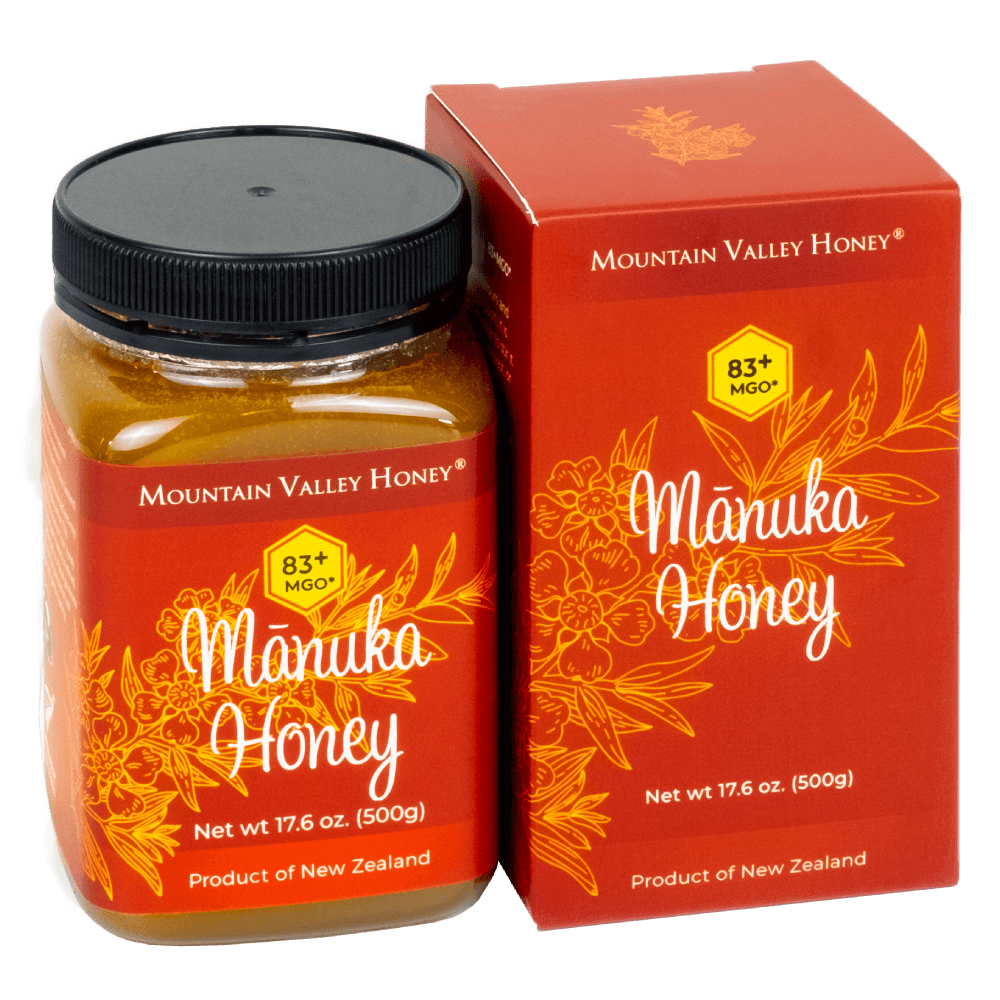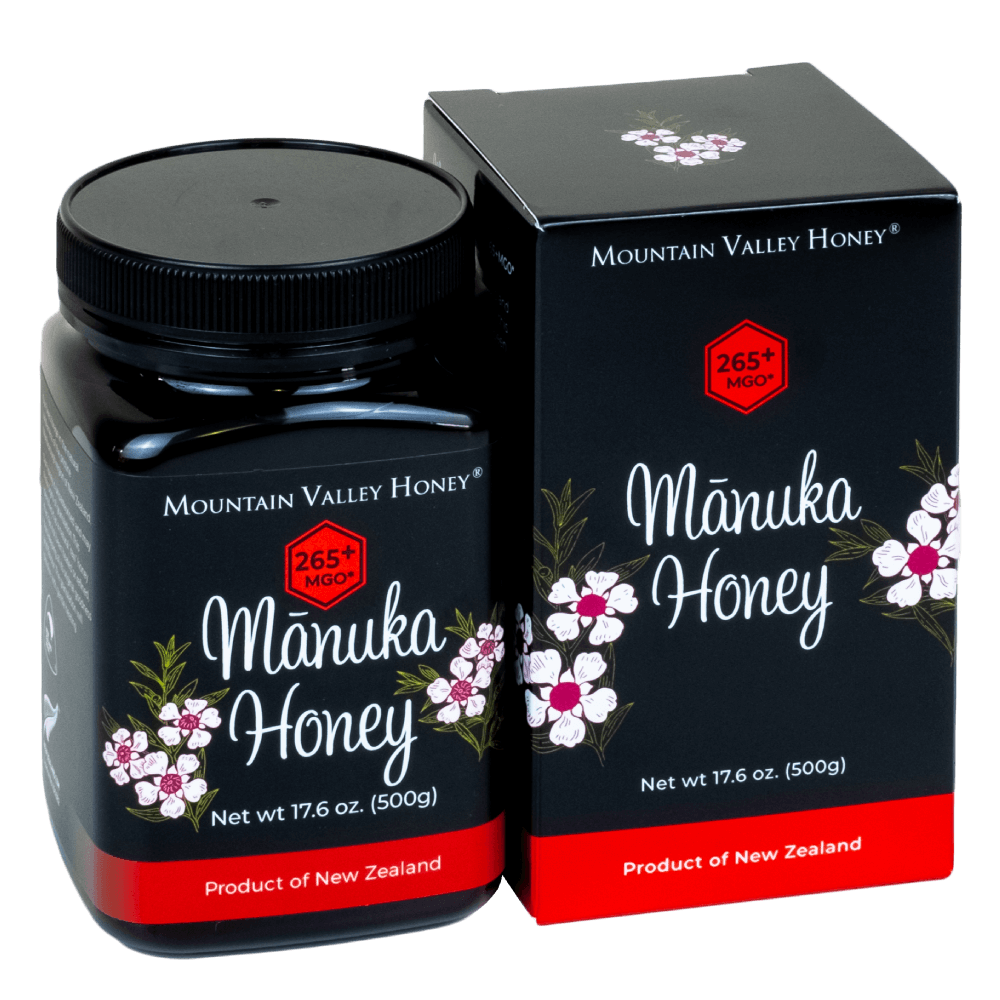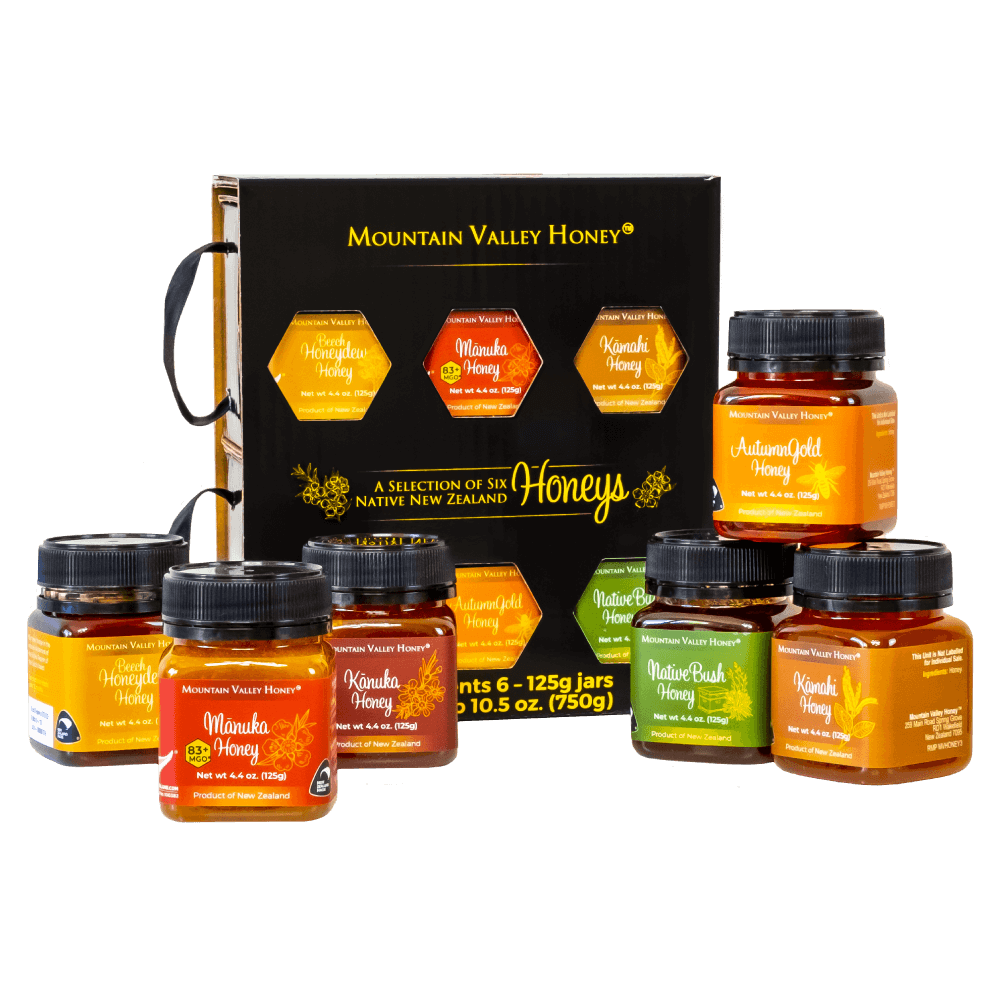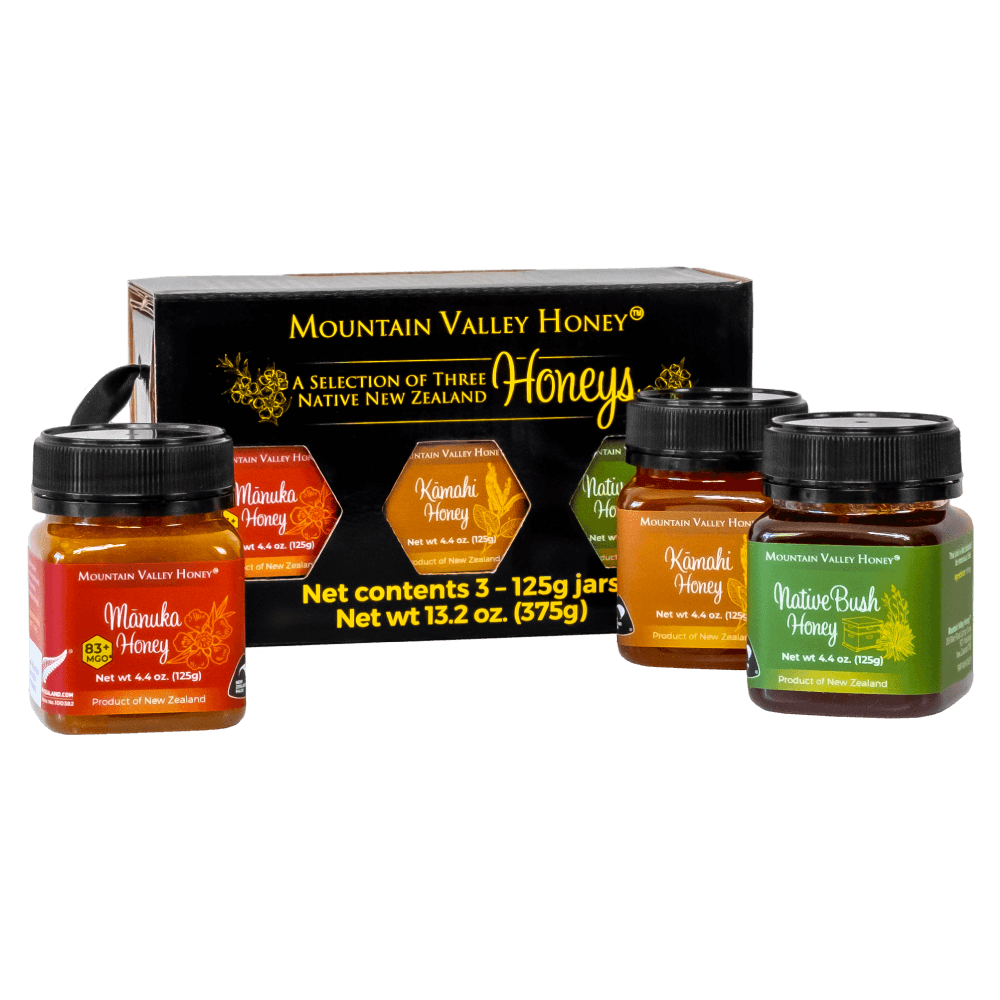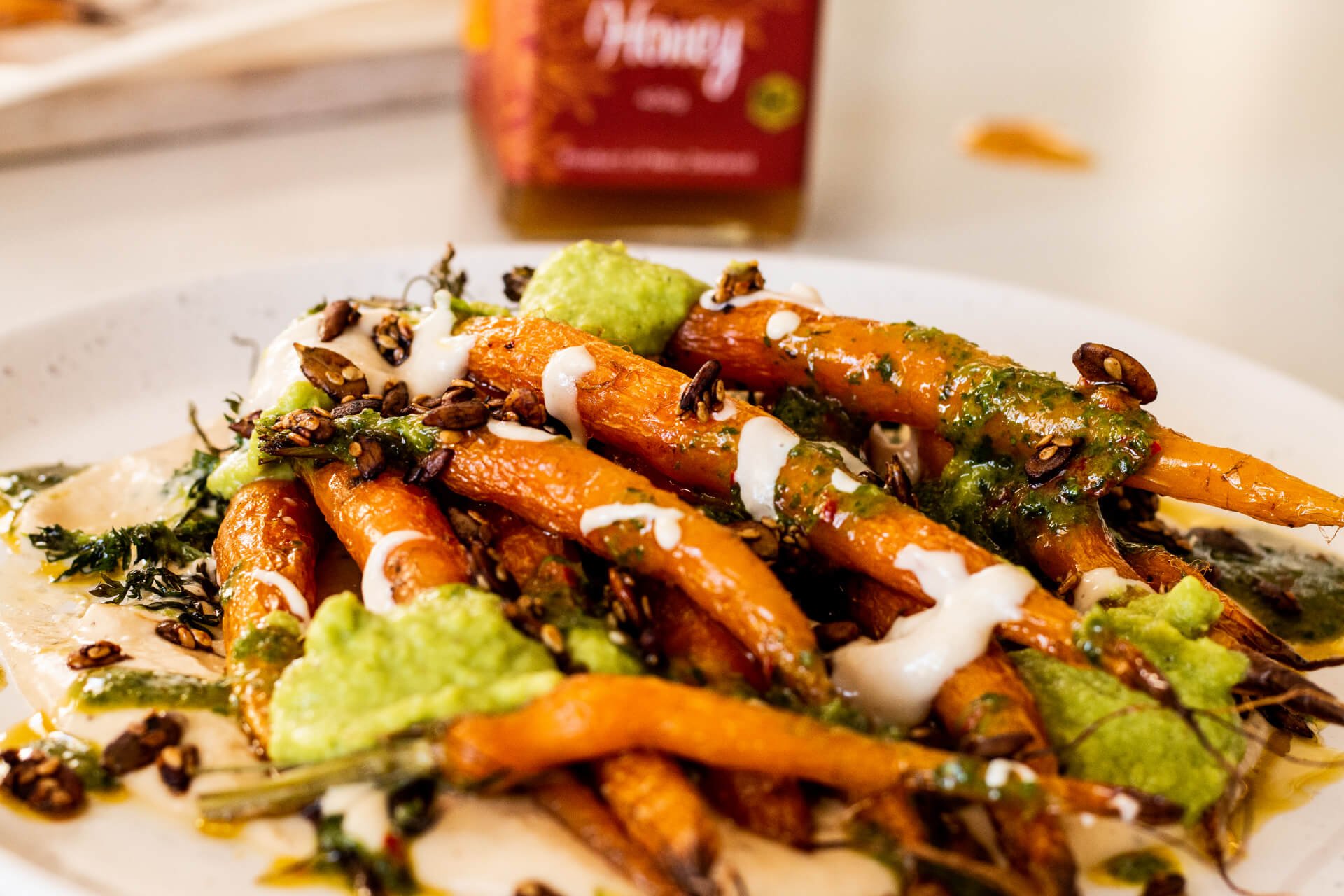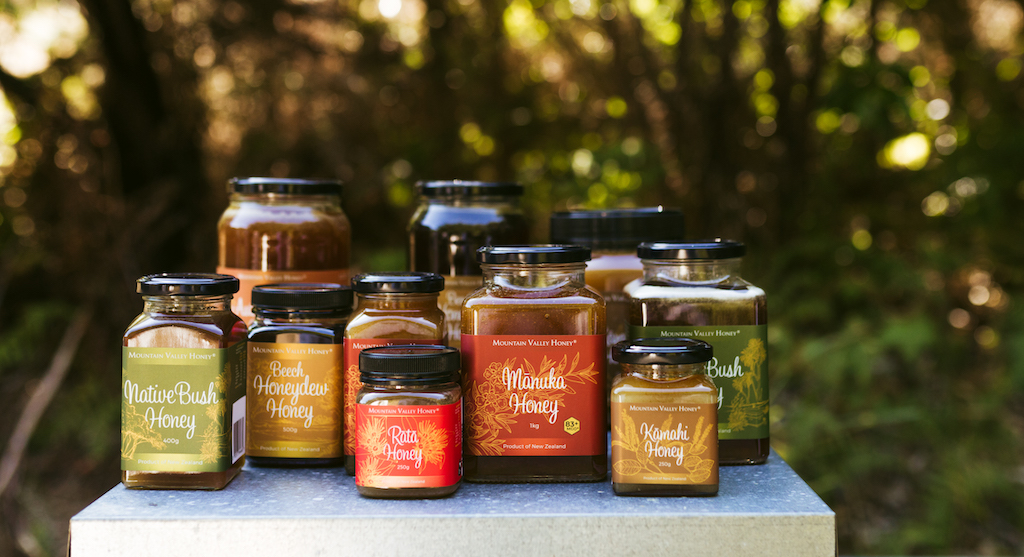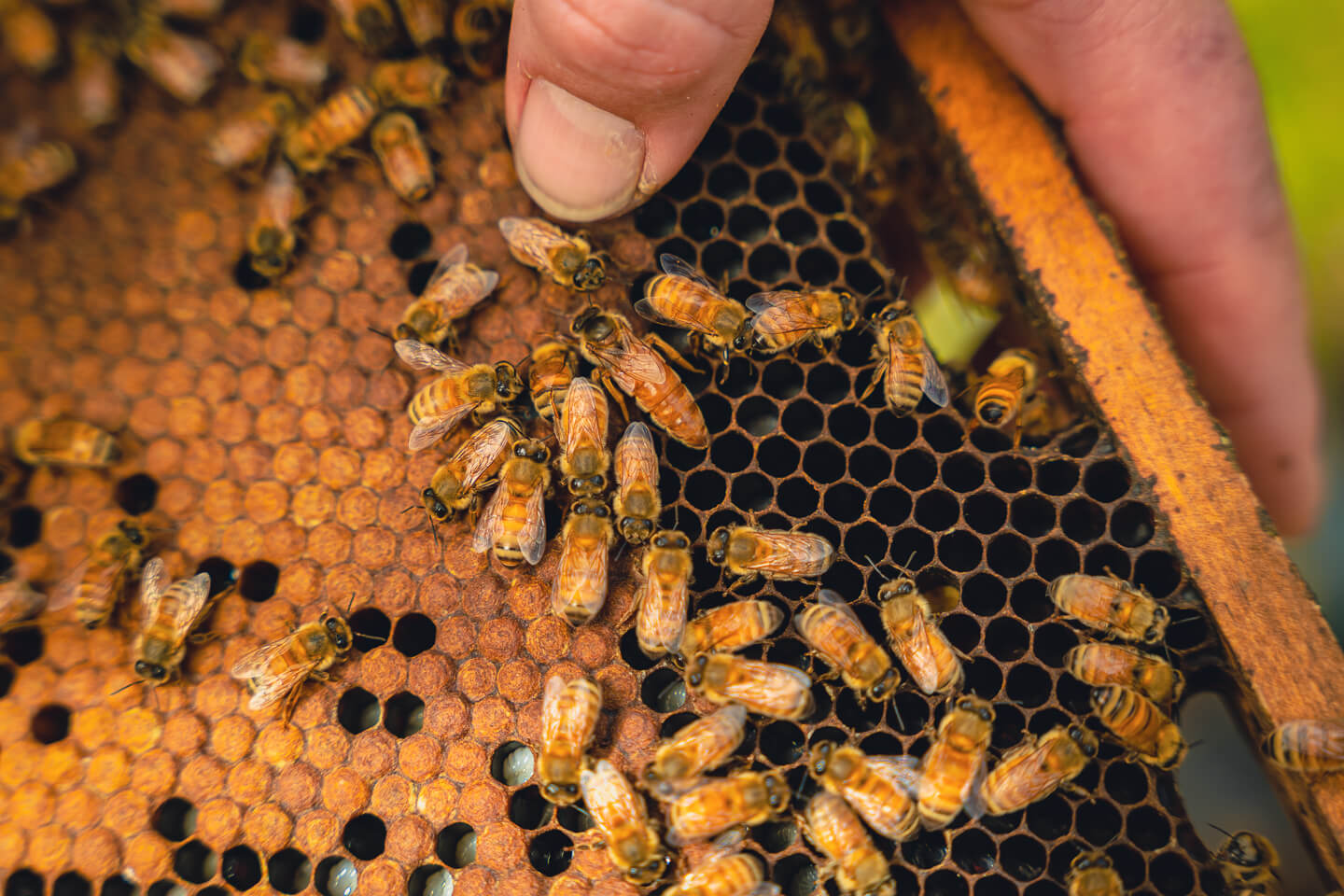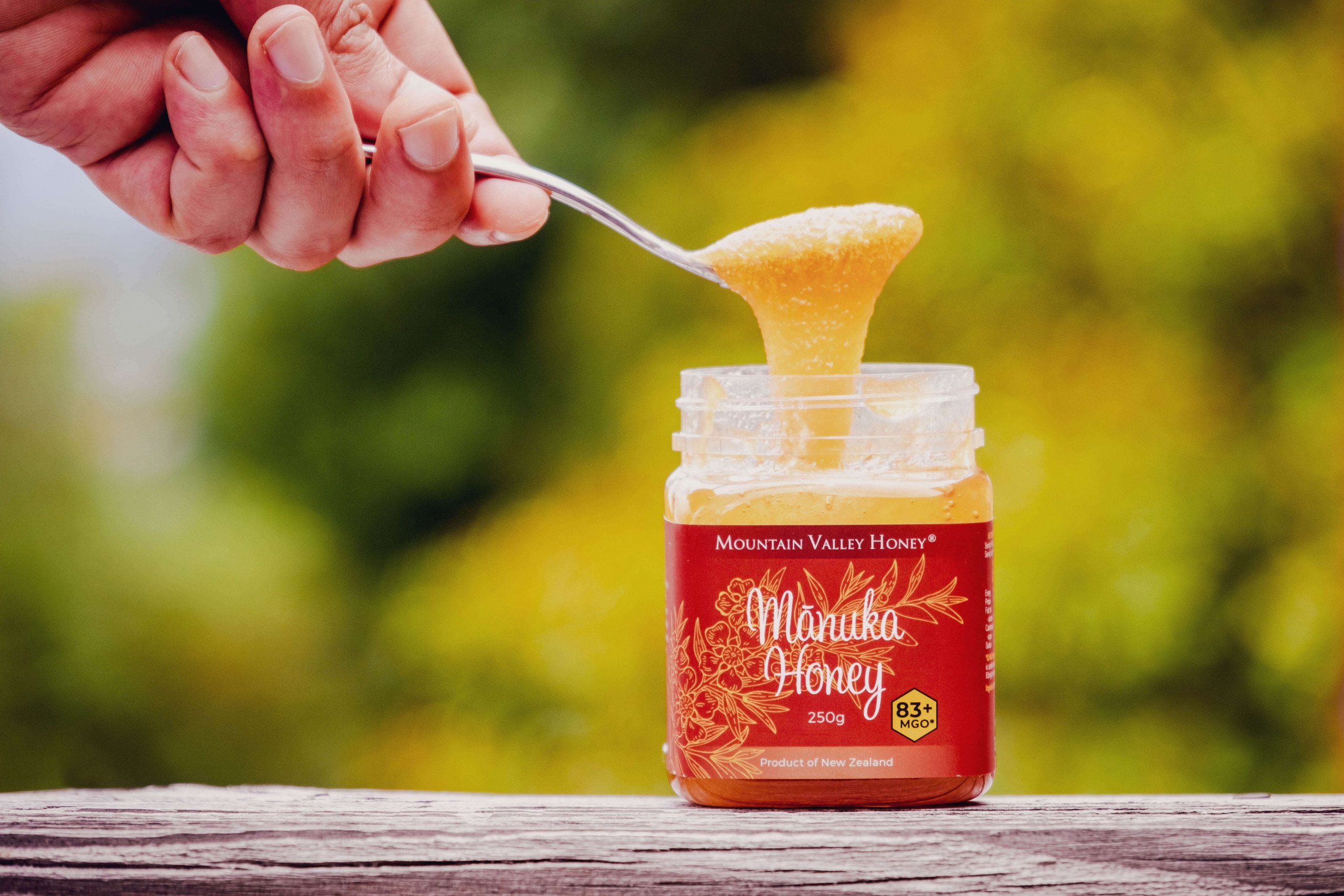Is Honey Good For You? Honey vs Sugar
Over the past few years, the debate about sugar has certainly been heating up. While the topic remains controversial, there is growing evidence that eating too much sugar has negative effects on human health. For this reason, many people are looking for ways to reduce their sugar intake. So what about honey? Should we use it to replace sugar? Is honey good for you?
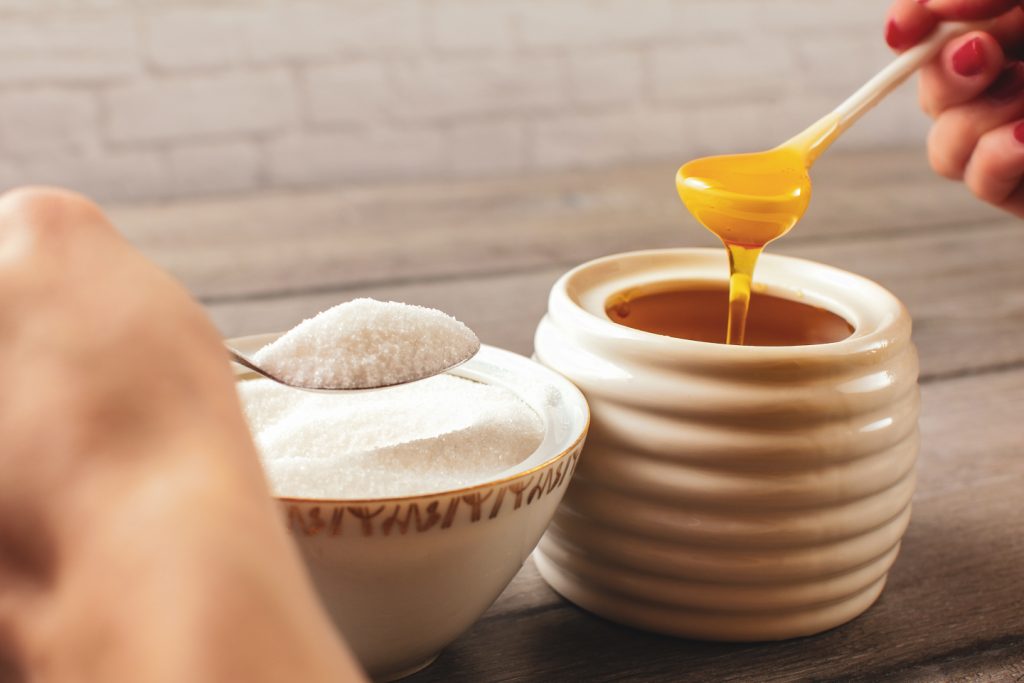
Unfortunately, the answer to cutting out sugar is not as easy as replacing it with honey. It is important to bear in mind that Honey is also a sugar. So, it must be eaten in moderation as part of a balanced diet.
However, there are certainly some fantastic reasons for replacing sugar with raw honey.
Raw honey has a slower energy release than sugar
Although they are both sugars, honey and sugar are quite different. White sugar is made by refining sugar cane or sugar beet. It is made of sucrose, a bonded combination of 50% glucose and 50% fructose.
Honey is a much more complex sugar and contains roughly 35% glucose, 40% fructose, plus a range of other carbohydrates, minerals, vitamins and water.
Thanks to its different chemical makeup, raw honey has a lower glycemic index than white sugar. That means honey doesn’t raise your blood sugar levels as fast as sugar. Because of this slower energy release some researchers claim it may be better for diabetics than sugar.
While early trials are positive, there is much work to be done before any conclusions can be drawn. If you are diabetic, make sure to consult with your doctor on what is appropriate for your diet. While honey may be better than sugar, more research is needed to truly understand its effects on those with diabetes.
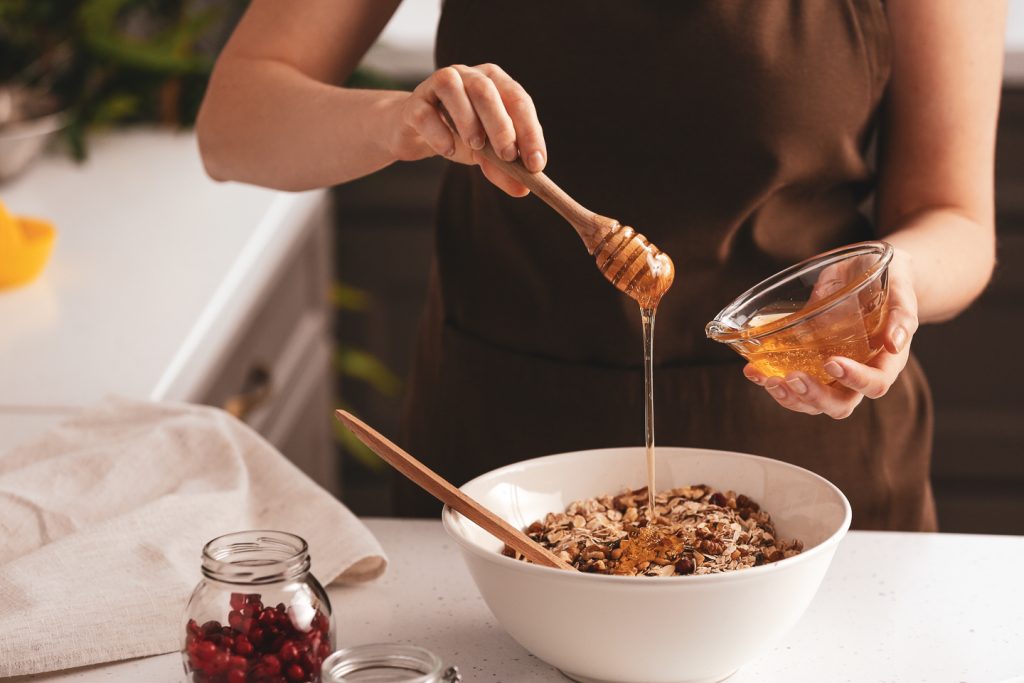
Honey is sweeter than sugar, so you don’t need as much
Thanks to high levels of fructose, honey tastes much sweeter than sugar. That means you can use less of it in your drinks or cooking to achieve the same level of sweetness.
While this might not make a big difference in your morning tea or coffee, it can have a big difference in cooking and baking. For example, a recipe that calls for 2 cups of sugar, only requires about 1 ¼ cup of honey to achieve the same level of sweetness. This is great news for those trying to cut down on their sugar intake.
Not only that, honey offers more complex flavours that sugar alone can offer. In fact, chefs love playing with different varieties because each offers a different range of floral, earthy or caramel notes. For example, Kāmahi will add notes of burnt toffee to your cooking, whereas Mānuka can add strong, earthy notes.
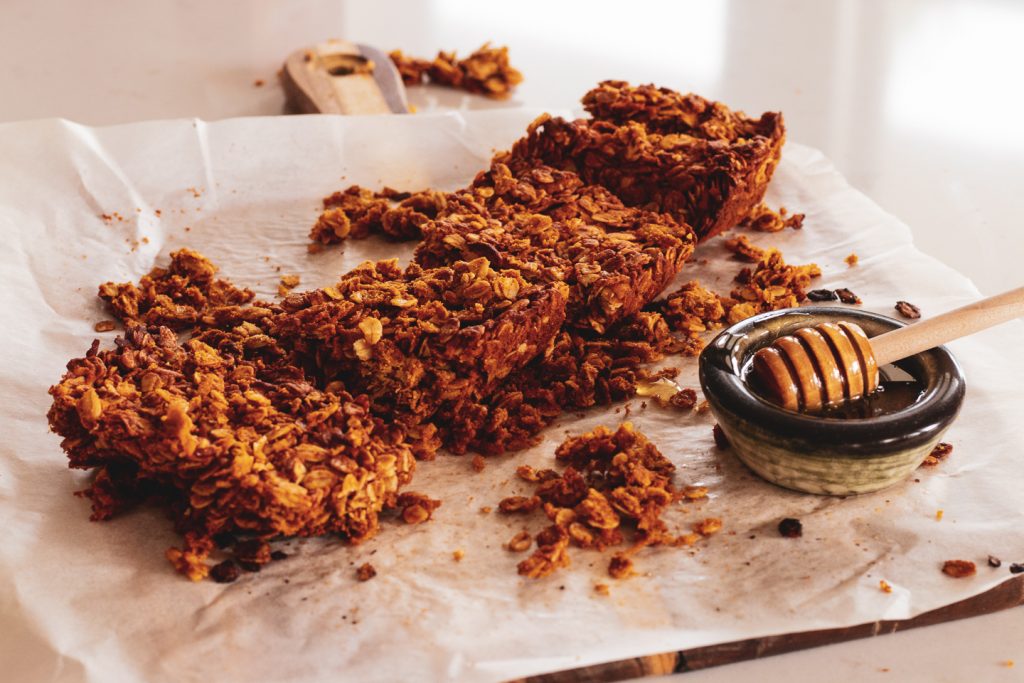
Raw honey is full of minerals, vitamins & antioxidants
Raw Honey is a great way to add vitamins, minerals and antioxidants to your diet. It contains over 200 different nutrients including:
- Potassium
- Zinc
- Calcium
- Folate
- Riboflavin
- Betaine
- Manganese
- Copper
- Selenium
- Fluoride
- Phosphorus
- Magnesium
Most of these nutrients can be attributed to the traces of pollen and propolis found in raw honey. Research into bee pollen and bee propolis is revealing how these traces can help boost our immune systems.
If you’re looking to reduce your sugar intake, but benefit from these nutrients, you can simply sprinkle some bee pollen granules on top of your food or in your smoothie.
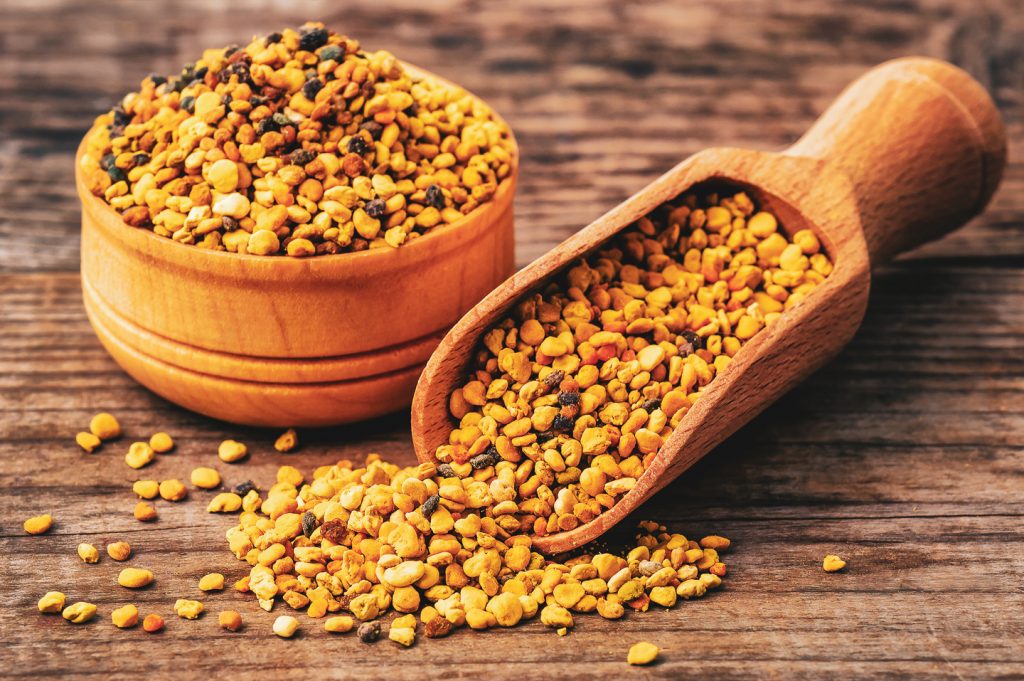
Treating wounds & skin problems
Raw honey is great for treating wounds and all kinds of skin problems because of it’s antibacterial properties.
But some honeys, like Mānuka and Kānuka, have even better effects — thanks to a substance called methylglyoxal (or MGO). Research shows Mānuka has stronger antibacterial effects due to MGO. This has even led to Mānuka receiving its own rating system.
Research into the amazing health benefits of Mānuka is very exciting, with scientists finding new health benefits all the time.
So when it comes to wound healing and skin care, the answer to the question “Is honey good for you” is a resounding YES!

Naturally smooth a sore throat and cough
Thanks to its antiseptic properties, all raw honey benefits a sore throat. It creates a soothing coating on the throat, making it a gentle and natural home remedy. In fact, in one study researchers found that honey can be more effective at suppressing coughs than traditional cough medicines.
If you’re looking to use honey for this purpose, just make sure that you don’t swallow it all at once. Try to keep it in your mouth for as long as possible to maximise its effects.
So is honey good for you if you have a sore throat? Yes, it sure is! It can help soothe your throat and reduce your cough meaning a better night’s sleep for you and others in the house.
Mānuka has additional anti-inflammatory properties which help reduce swelling at the same time as killing germs.
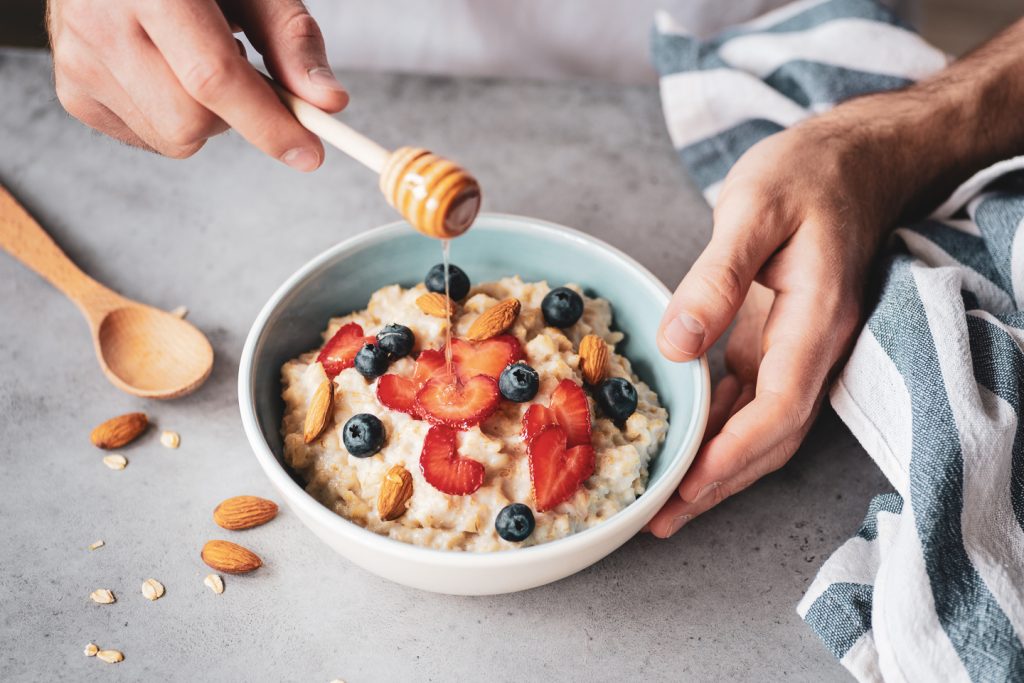
In conclusion
So is honey good for you? Overall, the answer is yes — so long as you bear in mind that it is still a sugar and should not be eaten in excess. With that in mind, if you’re looking for a natural, unrefined food that is not just sweet but also has great health benefits, why not swap some of that sugar for raw honey? It’s full of nutrients and you don’t need as much of it to achieve the same level of sweetness as sugar.
